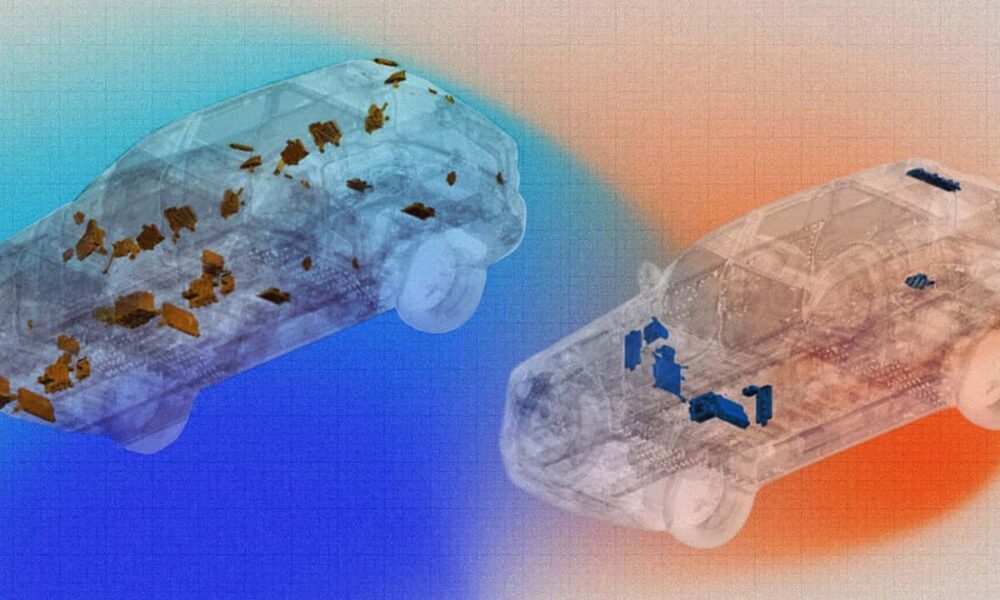UPDATE: General Motors (GM) has just announced a groundbreaking shift in automotive technology that will impact both electric and gas-powered vehicles. The company is set to introduce a revolutionary centralized compute architecture in its vehicles, starting with the highly anticipated Cadillac Escalade IQ in 2028. This new system promises to redefine how cars are built, significantly enhancing features while simplifying manufacturing.
At the GM Forward tech event in New York City, senior vice president of Software and Services Engineering, David Richardson, emphasized the importance of this innovation. “It’s propulsion-agnostic, which means that this technology will run across both electric and gas vehicles… and the payoff is massive,” he stated. This development is particularly crucial as the automotive industry faces slowing EV sales and a growing need for cost-effective solutions in traditional gas cars.
The centralized compute architecture will streamline vehicle functions by reducing the number of traditional modules to a few integrated units. This means that a single liquid-cooled central computer will manage up to 12 different modules, while connectivity will be handled by another module that supports radio, Bluetooth, WiFi, and 5G capabilities. This innovative approach will also eliminate standard fuse boxes, replacing them with more efficient aggregators that facilitate quicker feature updates.
GM’s director of platform engineering, Gary Cygan, explained the transformative impact of this new architecture. “We’ve moved away from standard fuse boxes… It means the quicker addition of new features over time,” he noted. The shift to a centralized system not only reduces complexity but also lowers material costs, although the exact impact on vehicle pricing remains to be determined.
This ambitious project aims to bring advanced software capabilities to gas vehicles at a time when many manufacturers are heavily investing in EV technology. GM’s centralized architecture allows for more seamless integration of cutting-edge features, which is vital for remaining competitive in a rapidly evolving market.
The announcement comes amid a broader industry trend towards more sophisticated automotive technology. As automakers seek to innovate amid fluctuating consumer preferences, GM’s initiative may provide a crucial advantage. By leveraging the lessons learned from electric vehicle development, GM aims to enhance the performance and maintainability of its gas-powered lineup.
While the Cadillac Escalade IQ will be the first model to showcase this technology in 2028, the centralized compute system is expected to be rolled out across GM’s entire vehicle range shortly thereafter. This includes current models, indicating a significant upgrade in technology without the need for entirely new designs.
Furthermore, the benefits extend beyond performance improvements. This new architecture could enhance repairability by reducing the number of components that could fail, offering consumers greater peace of mind. “There are fewer things that can go wrong, fewer things that if they go wrong, it takes time to diagnose,” Cygan remarked.
As GM continues to explore the future of mobility through robotics, AI, and autonomous vehicles, it is evident that the company sees a vital role for gas-powered cars in its strategy. With the promise of frequent software updates and improved features, consumers can expect a better driving experience even as the automotive landscape shifts towards electrification.
This announcement marks a pivotal moment for GM and the wider automotive industry, signaling a commitment to innovation that could reshape how consumers view both gas and electric vehicles. As these developments unfold, the automotive world will be watching closely to see how GM balances its gas-powered and electric offerings in the years to come.
Stay tuned for more updates on this evolving story as GM works to redefine the future of driving.







